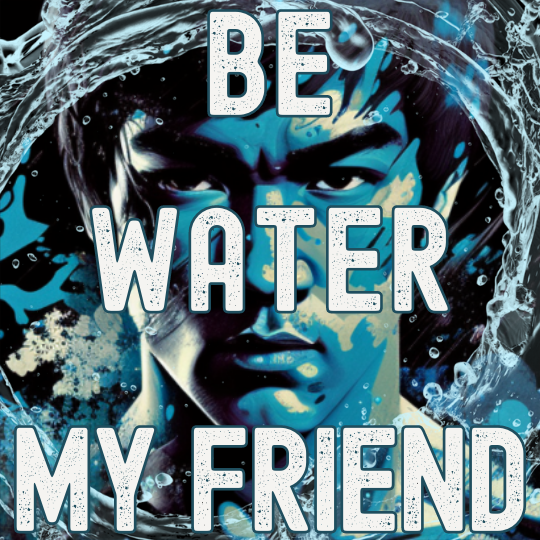
Water is always an excellent example to follow for martial arts; as Bruce Lee famously said, “Be water, my friend.” However, Lee’s famous quote needs to be better understood, even by long-time martial arts students. So let’s explore Bruce Lee’s most recognized inspirational quote more deeply.
Key Takeaways
- “Be water, my friend” was a line from an episode of Longstreet
- water has no mind; it just follows nature
- to flow, you must be mindful
- “full” & “empty” is simply a matter of pressure
- like a tsunami, we can “crash” if we have enough power

The Origins of Bruce Lee’s “Be Water My Friend”
In September 1971, Bruce Lee appeared in an episode of Longstreet titled “The Way of The Intercepting Fist” as the character Li Tsung. However, those words became iconic after his interview with Pierre Burton later that same year.
In the episode, the titular character Mike Longstreet, a blind man, hires Li Tsung to help him learn how to fight so he can defend himself. After complaining to “Li” that there was “too much to remember,” Li scolds Longstreet telling him “if you try to remember, you will lose!”
The sagacious Li then offers his seminal advice:
“Empty your mind.
Be formless, shapeless, like water.
You put water into a cup; it becomes the cup.
You put water into a bottle; it becomes the bottle.
You put it into a teapot; it becomes the teapot.
Now water can flow, or it can crash.
Be water, my friend.”
What Did Bruce Lee Mean By “Be Like Water”?
I spoke about Bruce Lee’s inspirational quote during one of my Zoom classes.
“Water has no mind; it simply follows nature or Tao 道 (the natural order of existence). By default, water is present, formless, and neutral; it simply obeys pressure and tension.”
We should pause here to discuss the concepts of “no mind” and “present, formless and neutral” in more depth.
No mind, or mushin 無心, is an essential concept in Zen philosophy with clear applications to martial arts. Mushin is a state of wordless awareness. It is a state of no thinking, but no thought doesn’t mean a state of blankness like a sleepwalker. On the contrary, it’s a state of deep knowing. One can clearly see the differences from one moment to the next, but without an ongoing internal dialogue or mental narrative.
When you can see and change with change without any sense of either attachment or aversion, we call this “flowing.”
So we want to develop that quality of being “like water” so that point of contact tells me, “if this is full, I flow around. If it’s not full, I just flow in,” or “I already know that I have enough power that I can just crash through full or empty, it doesn’t matter anymore, I can just attack it directly.”
And again, this pressure is already there; it’s just a matter of whether or not you can observe it to know full and empty. And to know whether you can just attack it, attack the fullness, or you need to flow around.
So it’s how we want to tune our minds as we train.
Related Posts


Mind & Body As One
On the physical side of training, we have our diagnostic checklists. We have a checklist of the “six physical principles.” We have the checklist of the 13 points to scan ourselves to observe the balance of the internal tension between the yin and yang muscles, and because we’re talking I Liq Chuan, we’re talking about mind and body.
So on the mental side now, we have the three mental factors to constantly guide our training; so that I can observe my mind while I train, “am I present and formless”; am I acting like water right now? Is my mind like water?
I simply observe the pressure and the tension. Am I harmonizing with the pressure and the tension, or am I trying to fit a square peg into a round hole? So in many martial arts, they talk about “intent” or “will,” but in I Liq Chuan training, we talked about the yi 意 as just being attention, like the mirror, right?
Still water has no image of it’s own, it simply reflects on it’s surface. As Bruce Lee said “empty your mind, and be water my friend.”
Show Some Love
If you found this article useful, you can support my blog by making a purchase from our Amazon Storefront and help me continue to provide valuable content.
If you’re ready to embark on your own journey of personal growth through martial arts, here are three ways I can help:
- Consider our small group or online martial arts classes to start your practice.
- Explore our other articles to deepen your understanding.
- Book a free discovery call to find out if one of our programs is right for you.




